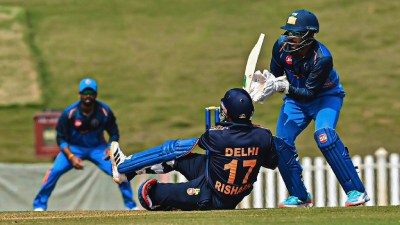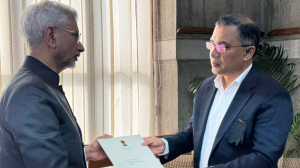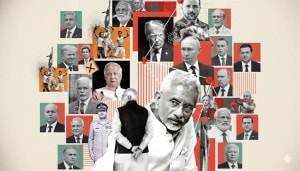What roots, Comrade?
While the world changes, the CPM remains moored to its ideology. Nothing seems to have affected the party since its formation 36 years ago...

While the world changes, the CPM remains moored to its ideology. Nothing seems to have affected the party since its formation 36 years ago, following a split in the CPI. Thus even when the party prepares an quot;updatedquot; programme of action, it draws heavily upon its pristine ideological postulations. The only concession it makes to its critics who question the party8217;s relevance in the changed scenario is a reference to the collapse of the Soviet Union.
Needless to say, it continues to lay great store by socialism, which it believes has not lost its relevance. All this would not surprise anyone who is aware that the CPM offices and platforms are not complete without a garlanded portrait of Stalin. The party8217;s aversion for change is, in fact, reflected in the statement of the party general secretary, Harkishan Singh Surjeet, that the programme had been quot;updatedquot; and not quot;revisedquot;. Surjeet has made this clear in so many words. Those who expected some measure of clarity on the party8217;s stand vis-a-vis issues of contemporary national importance have been disappointed. Take, for instance, the question whether the CPM would join the central government if an invitation were to come its way. The question is only of academic interest as there is no immediate prospect of the Third Front coming to power at the Centre.
Yet, the party has not shown adequate moral or political courage to answer the question in an unequivocal manner. People can infer whatever they want when the draft programme says that while working to dislodge the quot;present ruling classesquot; the party would utilise quot;all the opportunities8230; of bringing into existence governments pledged to carry out a modest programme of providing immediate relief to the peoplequot;. In common parlance it means the party is not opposed to joining a government. But then, as Surjeet points out, the old programme too had the same formulation and yet it prevented West Bengal Chief Minister Jyoti Basu from accepting the offer to head a Third Front government. The party has clarified that everything will be decided on the basis of the party8217;s long-term interests.
It would be instructive to know how its obsession with long-term interests served the party. Did its support for V.P. Singh in the 1989 election that facilitated the BJP8217;s first major political triumph help in its long-term strategy? Or did its willingness to sup with the communal devil in 1967, and later, serve its long-interest interest? Did the enthusiasm shown to usher in the dynasty earn the party any dividend except ridicule from its own cadres?
The answer to all these seems to be in the negative if the state of the party is anything to go by. Except in West Bengal and Kerala, where its supremacy is increasingly under threat, the party has lost whatever electoral clout it once enjoyed in states like Tripura, Tamil Nadu, Andhra Pradesh, Bihar, Maharashtra and Punjab. Its influence on students, workers and peasants has also been on the wane. The threat of a quot;mahajotquot; in West Bengal rankles the party so much that it is even prepared to put on hold the decision to retire Jyoti Basu after the next elections. How divorced the party is from political realities is underscored by the state of its national leadership, led as it is by people who have not won a parliamentary election. So much for its claims of being rooted in the soil!
- 01
- 02
- 03
- 04
- 05































